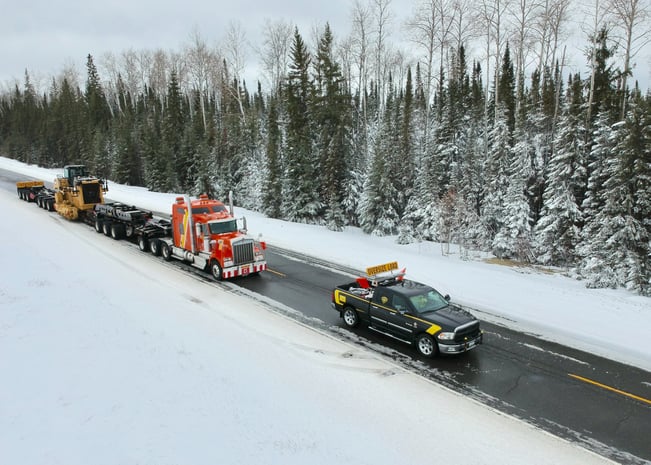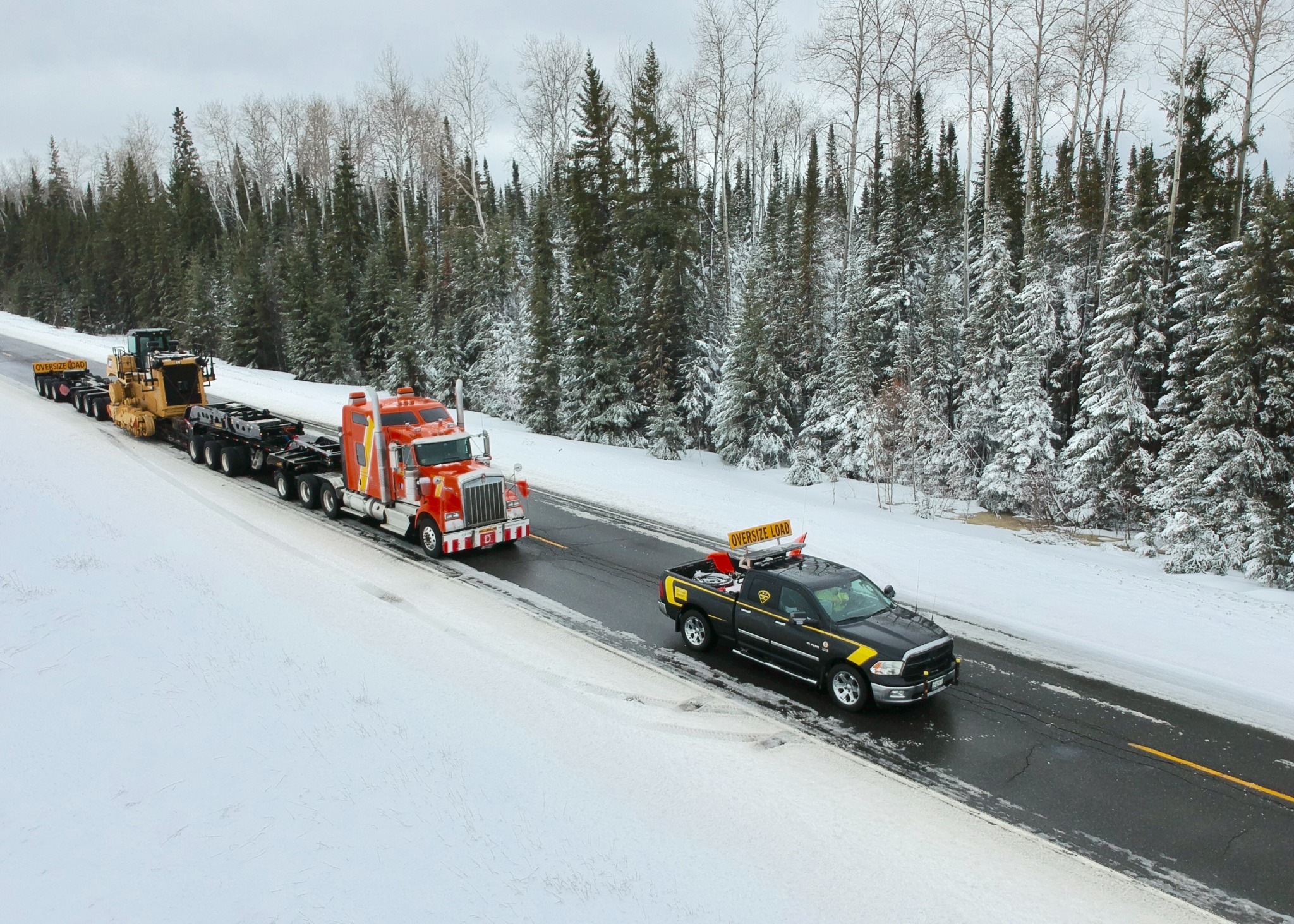Hundreds of ships carrying containers from Asia and the rest of the globe have ended up hoarded in BC’s ports due to the non-availability of semi-trucks and intermodal options.
Canada's trucking industry is watching multiple crises unfold with concern, as it grapples with its own shortage of truck drivers. The industry is always facing some sort of truck driver shortage but this time it’s exasperated the trucking industries' problems due to the implementation of the vaccine mandate, mandatory entry-level training (MELT), electric vehicles, and much more.
This shortage of qualified, professional truck drivers has exacerbated post-Covid-19, due to the need for better job security, health benefits, pay, and working conditions. According to Global News, this trucking driver shortage has triggered a countrywide supply chain issue leaving a huge gap of almost 18,000 truck driver vacancies to be filled by the end of 2022 in Canada. Needless to say, failure to fulfill this workforce gap will lead to a huge economic crisis due to supply chain issues. Unfortunately, this is not it. A study by Trucking HR Canada estimated these numbers to rise to 55,000 by 2023 alone since most of the present trucking workforce in Canada is the baby boomers, who are on the edge of retirement.
Key Challenges of the BC Trucking Companies
To put salt on the wound, the applications trucking companies are receiving lack the basic required levels of experience and training to get started immediately. Meanwhile, the repercussions of the truck drivers' shortage will be felt everywhere – from grocery stores to pharmaceuticals, medical supplies, construction materials, and so on. David Soberman, the Canadian National Chair of Strategic Marketing tells about how the disruption in supply chains due to trucking company problems such as driver shortages would lead to empty food shelves and stocked stores leading to a huge catastrophe for the Canadian economy.
The Canadian Trucking Alliance has announced to roll out immediate three-year short-term recruitment plans to enable a 10 percent increase in the trucking workforce each year until 2025. However, how much this plan would succeed depends on if the trucking companies would be able to overcome the key challenges faced by them, especially after the onset of COVID-19.
Some of the challenges faced by British Columbia Trucking companies are discussed below:
- Mandatory Entry-Level Training, MELT: Until recently, British Columbia was one of the few provinces that did not require mandatory entry-level training (MELT). However, this mandatory entry-level training has now been made compulsory for all truck drivers in Vancouver, BC seeking Class 1 and Class 2 driver’s licenses. This means a higher benchmark in training hours, ranging anywhere between 102 to 121 hours for the British Columbia truck drivers seeking immediate employment.
- Truck Driver Shortage: The pre-Covid 19 truck driver shortages were 302% (between 2015 to 2019) from previous levels. However, the numbers rose even higher, leaving 3710 truck driver vacancies in Vancouver BC alone, despite a huge 10% bump in wages from the previous ones. Due to this reason alone, the unemployment levels in the BC trucking companies have risen sharply since the onset of Covid-19. Waiting times are killing the industries, driver logbooks put on wait, trucks full of items ready to be driven but facing driver shortages is a huge dilemma faced by trucking companies in Vancouver, BC today.
- Electronic Logging Devices (ELD): Electronic logging devices are a mandatory item in the modern trucking industry in Canada. They connect with and monitor a vehicle’s usage, often through the vehicle’s diagnostic port, to record driving hours and other pertinent data. As per the FMCSA’s ELD mandate , all non-exempt commercial motor vehicle drivers require compliant ELDs. It is required by the Federal Motor Carrier Safety Administration (FMCSA) to improve the safety of commercial motor vehicle (CMV) drivers and general motorists. While this is a huge step by the federal government to ensure road and truck driver behavior and fleet safety, this immediate announcement for quick compliance until mid-2021 also meant additional costs per truck for the trucking industries in BC, Alberta and all other provinces. ** Note that deliberately unplugging an ELD may lead to violations and potentially hefty fines.
- Training Expense: Due to the MELT and ELD compliance measures, one key challenge in new truck driver hiring is also the increased costs for training and recruitment of new talent. Take, for instance, getting a commercial driver’s license can cost anywhere between $5000 to $10,000 depending on the type of license required and each state’s policies.
- The onset of Electric Vehicles: It is pertinent to mention that the automotive industry itself is evolving with pilot projects having fully seen electric Class 8 trucks on B.C.’s roads. Even though there is huge government support for electric trucks in the form of rebates, it is very tough to buy and put those trucks on the roads in the first place. This is due to the huge amount of investment involved in replacing old vehicles with e-trucks. Fortunately, the rebates amount from 30% to 50% of the total investment costs, ranging anywhere between $15,000 per vehicle to $100,000 per fleet.
- The Covid-19 Dilemma: While industries have somehow started to rebound from the huge economic drawbacks due to the Covid-19. According to a survey conducted by the BCTA, revenues for trucking companies had dropped to 90% since the onset of the Covid-19 pandemic. Although truck volumes passing has somehow started to be seen to recover to 95% of that seen in 2019, there is still another pressing problem; while the trucks are moving, they are not always full. This means less efficiency and more cost per transit since the trucking services are not being utilized at full capacity.
Lastly, even though the trucking companies had announced a 10% increase in wages, drivers still remain reluctant in some parts of the country, especially in BC due to uncertainty of their employer’s guarantee to provide COVID-19 medical bills. Adding to it the new federal tax code changes, extensions for inspections, medical deadlines, and new cross-border protocols, the trucking companies found themselves unable to operate at full efficiency and effectiveness post-COVID-19 pandemic.
“The most important thing is for people to realize that you’re still going to get your day-to-day goods,” states Dave Earle, CEO of the B.C. Trucking Association. “They may be delayed a bit, but things will get there.”

 (604) 757 2441
(604) 757 2441